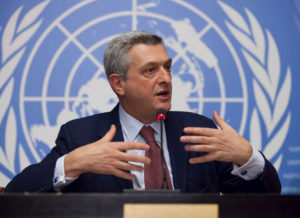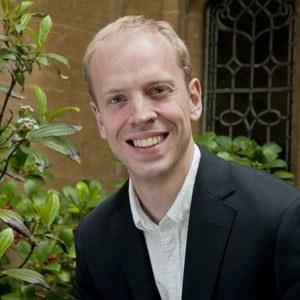UN’s refugee summit – what did it achieve?
It brought a large part of Manhattan to a standstill last week, it brought the good and great from across the planet but will it bring real change?
Last week’s UN Refugee Summit saw thousands of delegates and leaders descend upon New York for a much vaunted talk fest but the result contained few surprises.
According to the UN’s refugee agency, UNHCR, the adoption of the New York Declaration by 193 member states was an “historic achievement”.
The UN’s High Commissioner for Refugees Filippo Grandi said it represented “a political commitment of unprecedented force and resonance that would fill a perennial gap in the international refugee protection system – that of truly sharing responsibility for refugees”.

Filippo Grandi
According to the declaration document itself, the New York Declaration for Refugees and Migrants expresses the political will of world leaders to save lives, protect rights and share responsibility on a global scale.
It claimed for itself bold commitments both to address the issues the world now faces and to prepare the world for future challenges.
These include commitments to: protect the human rights of all refugees and migrants, regardless of status. This includes the rights of women and girls and promoting their full, equal and meaningful participation in finding solutions; to ensure that all refugee and migrant children are receiving education within a few months of arrival; prevent and respond to sexual and gender-based violence; and support those countries rescuing, receiving and hosting large numbers of refugees and migrants.
It also commits to: work towards ending the practice of detaining children for the purposes of determining their migration status; strongly condemn xenophobia against refugees and migrants and support a global campaign to counter it; strengthen the positive contributions made by migrants to economic and social development in their host countries; and, improve the delivery of humanitarian and development assistance to those countries most affected, including through innovative multilateral financial solutions, with the goal of closing all funding gaps.
There is also a blueprint for implementing a comprehensive refugee response, based on a new framework that sets out the responsibility of member states, civil society partners and the UN system, whenever there is a large movement of refugees or a protracted refugee situation.
The document also promises to find new homes for all refugees identified by UNHCR as needing resettlement; and expand the opportunities for refugees to relocate to other countries through, for example, labour mobility or education schemes.
While most commentators have lauded the fact that world leaders have actually come together to talk about refugees and migration, many say the declaration commits nations to do very little, has put off the really big decisions and has no mechanism to enforce compliance.

Alexander Betts
Director of Oxford University’s Refugee Studies Centre, Alexander Betts, said the event as a statement of interest “shouldn’t be understated”.
But he said the event was largely a wasted opportunity that has deferred urgently needed reforms of the global refugee system.
“What I don’t accept from what we’ve seen at this conference is that we can just have a blind faith that the declaration automatically leads to two global compacts, which automatically leads to operational change through comprehensive response plans,” Dr Betts said.
“Why do we need such a circuitous route to get there? We should have been finding those solutions here and now,” he said.
Dr Betts said the summit had failed to produce “visionary purpose and proactive leadership”.
“I accept there are political constraints and UNHCR in particular is in a very difficult position in the current political climate, but what I think is really missing and urgently needed is a vision for what a global refugee system should look like that’s not reactive but is proactive – and that has to come from the UN system.”
While the two compacts will be developed over the next two years through a process that is still unclear, UNHCR is expected to start implementing a Comprehensive Refugee Response Framework by the end of the year.
Former policy chief at UNHCR Jeff Crisp said it was not clear whether the framework represented a substantially new approach.
“The framework is essentially a synthesis of existing ideas, some of which are relatively new, such as addressing the needs of host communities from the beginning of a refugee emergency, and others which have been on the table for a very long time such as ensuring the engagement of development agencies,” Mr Crisp said.
So in the end, what has really happened?
That UN member states have signed on to the declaration at all suggests that change could be in the pipeline.
Over the next two years, a global compact for refugees and another global compact for migrants will be developed, which might be where concrete action really happens.
Even if nothing much concrete has actually happened, it is no bad thing that global leaders were in the same room to talk about protecting the world’s most vulnerable people.
And, it is notable perhaps that this is only the second time in history that this has happened.
Laurie Nowell
AMES Australia Senior Journalist













